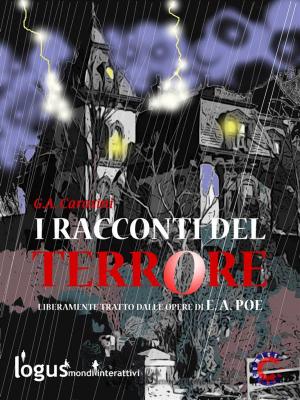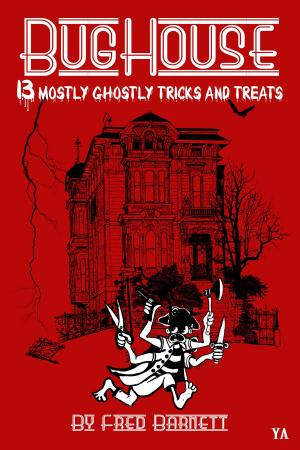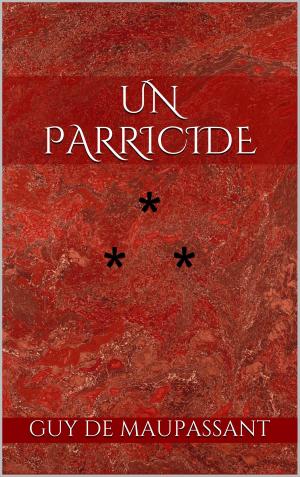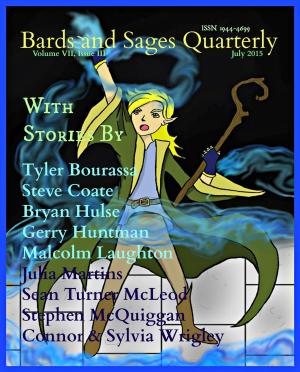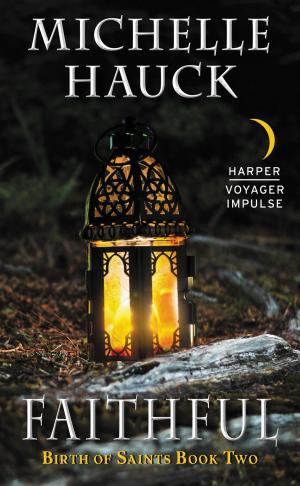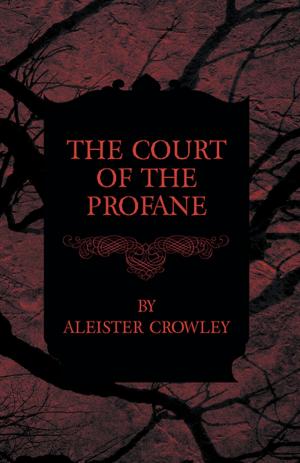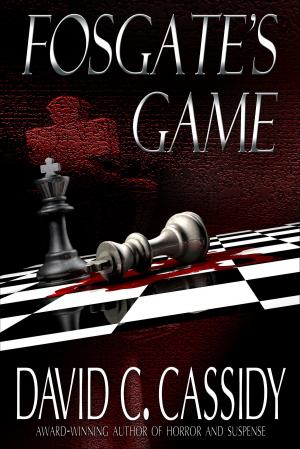Book Of Trinity
Nonfiction, Religion & Spirituality, Occult, Parapsychology, New Age, Science Fiction & Fantasy, Horror| Author: | A. J. Ryder | ISBN: | 9781458195555 |
| Publisher: | A. J. Ryder | Publication: | May 4, 2011 |
| Imprint: | Smashwords Edition | Language: | English |
| Author: | A. J. Ryder |
| ISBN: | 9781458195555 |
| Publisher: | A. J. Ryder |
| Publication: | May 4, 2011 |
| Imprint: | Smashwords Edition |
| Language: | English |
Taken from documentation written at the time, this novel - set between 1988 and 1993 - revolves around one woman's struggle against poltergeist activity, demonic possession and ultimate Exorcism at her home in the quaint English village of Slapton, Buckinghamshire. It is unknown how the demonic spirit came to be at the cottage, but its presence resulted in a battle ensuing between God and Satan as they waged war for souls. Finding herself caught in the middle and desperate for salvation from the evil spirit and ghosts which resided with her, Joanna turned to the Church for help, only to discover that the Exorcist appointed for the task would be less than accomodating.
REVIEW BY JO-JO @ Goodreads.com
If your tastes for true ghost tales are more about only scratching the surface, with action over substance, then I doubt this book will be for you. Most ghost stories tend to focus on things that go bump in the night and other ghostly pranks who’s objective is to terrify the occupants to the point they eventually abandon the house to the ghost. Although I enjoy reading peoples true encounters with ghosts and stories of haunting, these kinds of books always leave me wanting. Why is it there? Why does it behave the way it does? What is it? How does it all work? How can it be stopped? Rarely are these questions answered because the author focuses on the physical nature of the haunting rather than exploring the metaphysical aspects of it.
Book of Trinity, however, is less action more substance. This is a book of many layers, much darker and more complex than most books of this genre. There are examples of poltergeist activity in it, as well as possession and its affects on those involves but, as a ghost story, it is much more subtle than most. In fact, haunting are subtle. The way in which spirits interact with us is subtle. It is precisely for this reason that, unless you are the focus of a spirit’s malign behaviour, their existence is so hard to prove.
I would class this book more as a psychological supernatural thriller, than the classic supernatural horror. It explores the mental affects that manifest themselves whilst someone is under attack from malign spirits. The dreams, for example, venture into the disturbed mind with powerful discourse.
The book is also written like a diary of events, with each chapter giving dates and times so that the reader is able to gauge a better feel for the time-scale. The author does claim the book is based on written journals so I think to adopt this style within the structure of the book was a nice touch.
It has to be noted though, that this book is marketed as a novel and written in the third tense. It is also stated as being ‘based on a true story’, which suggests that the author has left the reader to decide what they believe is the truth of it and what is artistic interpretation. But for me, the very depth and darkness of this novel was enthralling enough, regardless of how much is deemed factual and how much is not.
Taken from documentation written at the time, this novel - set between 1988 and 1993 - revolves around one woman's struggle against poltergeist activity, demonic possession and ultimate Exorcism at her home in the quaint English village of Slapton, Buckinghamshire. It is unknown how the demonic spirit came to be at the cottage, but its presence resulted in a battle ensuing between God and Satan as they waged war for souls. Finding herself caught in the middle and desperate for salvation from the evil spirit and ghosts which resided with her, Joanna turned to the Church for help, only to discover that the Exorcist appointed for the task would be less than accomodating.
REVIEW BY JO-JO @ Goodreads.com
If your tastes for true ghost tales are more about only scratching the surface, with action over substance, then I doubt this book will be for you. Most ghost stories tend to focus on things that go bump in the night and other ghostly pranks who’s objective is to terrify the occupants to the point they eventually abandon the house to the ghost. Although I enjoy reading peoples true encounters with ghosts and stories of haunting, these kinds of books always leave me wanting. Why is it there? Why does it behave the way it does? What is it? How does it all work? How can it be stopped? Rarely are these questions answered because the author focuses on the physical nature of the haunting rather than exploring the metaphysical aspects of it.
Book of Trinity, however, is less action more substance. This is a book of many layers, much darker and more complex than most books of this genre. There are examples of poltergeist activity in it, as well as possession and its affects on those involves but, as a ghost story, it is much more subtle than most. In fact, haunting are subtle. The way in which spirits interact with us is subtle. It is precisely for this reason that, unless you are the focus of a spirit’s malign behaviour, their existence is so hard to prove.
I would class this book more as a psychological supernatural thriller, than the classic supernatural horror. It explores the mental affects that manifest themselves whilst someone is under attack from malign spirits. The dreams, for example, venture into the disturbed mind with powerful discourse.
The book is also written like a diary of events, with each chapter giving dates and times so that the reader is able to gauge a better feel for the time-scale. The author does claim the book is based on written journals so I think to adopt this style within the structure of the book was a nice touch.
It has to be noted though, that this book is marketed as a novel and written in the third tense. It is also stated as being ‘based on a true story’, which suggests that the author has left the reader to decide what they believe is the truth of it and what is artistic interpretation. But for me, the very depth and darkness of this novel was enthralling enough, regardless of how much is deemed factual and how much is not.


